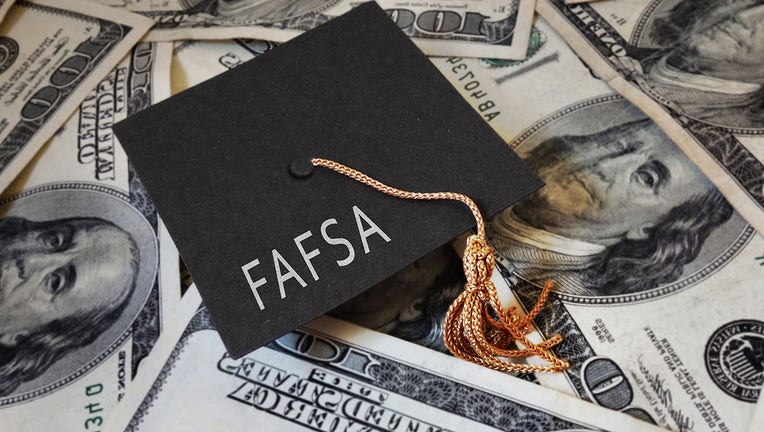FAFSA misunderstood by majority of students, study says: What to know about the federal aid application

A new study shows many students don't understand FAFSA, or what it's for. Here's what you need to know. (iStock)
The Free Application for Federal Student Aid (FAFSA) is an application that opens the doors for college students to get different types of financial assistance, such as grants, work-study programs and federal student loans. However, many borrowers are confused about FAFSA, which could lead to them potentially missing out on receiving federal aid, according to a new study.
In fact, about 85% of students said they weren’t aware that FAFSA determined their eligibility for more aid than just federal student loans, the study from Student Loan Hero found. Partially due to these misconceptions and lack of understanding about how the program works, 20% of undergrads said they don’t have plans to complete a FAFSA application this year.
If you completed your application but need more financial aid, you could consider taking out a private student loan while interest rates are at record lows. Visit Credible to get started today and find your personalized student loan rate.
APPLYING FOR FAFSA IS ABOUT TO GET A LOT EASIER
Top things to know about your FAFSA application
When it comes to FAFSA, there are misunderstandings about how the application process works and what to do after the aid is determined. Here are a few things to keep in mind:
Accepting the right amount
About 43% of students thought they had to accept the full student loan amount that they qualify for after filling out their FAFSA application, according to the study. However, that is not the case. After learning what they qualify for, students can choose which programs they want to enroll in or which grants they want to take. They can also choose the amount of student loan they want to accept.
Apply early
Some grants available through FAFSA are on a first-come, first-serve basis, so applying early gives students an edge on the competition. The study showed 41% of students didn’t know that filing their FAFSA application early would help them get more financial aid.
To make sure they receive as much funding as possible, applicants should submit their FAFSA form as close to the opening deadline as possible.
If you filed your FAFSA but didn’t get enough financial aid, you could consider taking out a private student loan. Students can visit Credible to compare multiple lenders at once and choose the one with the best rate for them.
How to pay for college education
According to the study, 27% of respondents said they believed FAFSA’s main goal was to provide aid to students under a certain income. However, that is only part of its purpose. For example, any student in an eligible program can qualify for unsubsidized federal student loans, which typically have lower interest rates than private student loans.
Another FAFSA roadblock was that 42% of students thought it was difficult to complete the application, the study showed. However, this is not the case.
To complete the FAFSA, students must have access to personal information such as their social security number, income tax returns and tax information - which could be entered automatically using the IRS data retrieval tool. From there, their expected family contribution will be determined for that school year and their aid packages will be provided. All students should apply to find out how much aid they are eligible for each year before the FAFSA October 1st deadline.
In determining their financial aid package, FAFSA will consider factors such as dependency status, child support payments and other financial information. It will ask for items such as a driver’s license, bank statements and information on assets in order to approve funding.
Students can also look at private scholarship options to pay for their tuition or contact their school’s financial aid office to discuss their options.
After determining their eligibility for federal aid, students who need more funds can consider taking out a private student loan. With today’s low interest rates, they could save on their monthly payments. Contact Credible to speak to a student loan expert and get all your questions answered.
WHERE AND HOW TO APPLY FOR FAFSA
Have a finance-related question, but don't know who to ask? Email The Credible Money Expert at moneyexpert@credible.com and your question might be answered by Credible in our Money Expert column.

